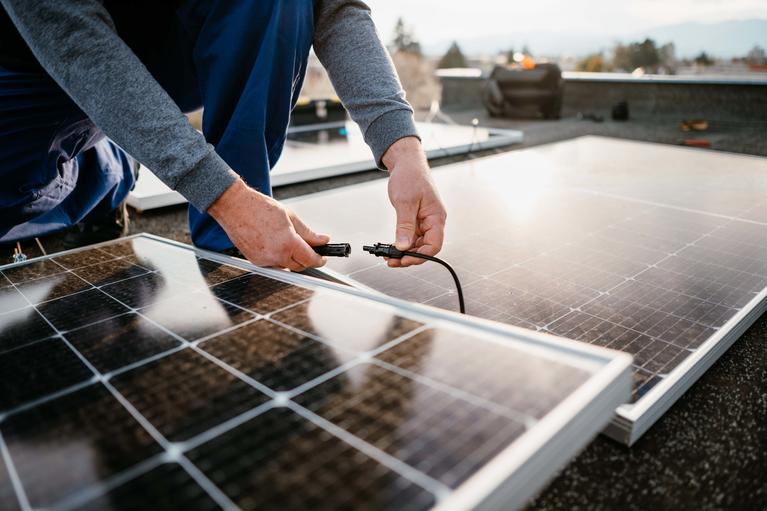
Current Energy Profile
Our State’s Current
Energy Profile
Understanding energy today helps us plan for a clean energy future.
The Colorado Energy Office helps lead Colorado’s transition to renewable energy. The state set ambitious goals to reduce our greenhouse gas emissions and reduce energy costs for Coloradans.
Colorado’s Current Energy Use
Colorado currently depends on a variety of energy sources, including fossil fuels, as we make strides toward our clean energy goals.
- Colorado's renewable electricity generation has more than tripled since 2010, thanks to increased wind and solar power. As of 2024, renewable power accounted for 43% of the state's total generated electricity.
- Colorado ranked seventh among U.S. states in installed wind power capacity in 2024.
For further information about energy use in Colorado, please visit the Colorado State Energy Profile and Energy Estimates.
Utility Service Territories
Colorado’s utility companies provide gas and electricity at the retail and wholesale levels.
Electric Utilities
Retail electric utilities power homes and businesses, and wholesale electric utilities generate electricity and power other utilities. There are many types of utilities operating in our state. Depending on where you are located, you may be served by an investor-owned utility, a cooperative utility, or a municipal utility.
There are two investor-owned electric utility companies: Black Hills Energy and Public Service Company of Colorado (Xcel Energy). These utilities are regulated by the Colorado Public Utilities Commission (PUC). Coloradans also receive electricity from 28 municipal utilities and 22 rural electric cooperatives. These utility companies are not regulated by the PUC because they are not for-profit corporations.
Gas Utilities
The majority of Colorado’s buildings are heated with gas. Many areas of the state receive gas service from either an investor-owned or municipal utility, while other areas do not receive gas service from a utility.
There are four investor-owned gas utility companies that are regulated by the PUC: Atmos Energy Corporation, Black Hills Gas Distribution, Colorado Natural Gas, and Public Service Company of Colorado (Xcel Energy). Colorado’s 11 municipal utilities are not regulated by the PUC.
